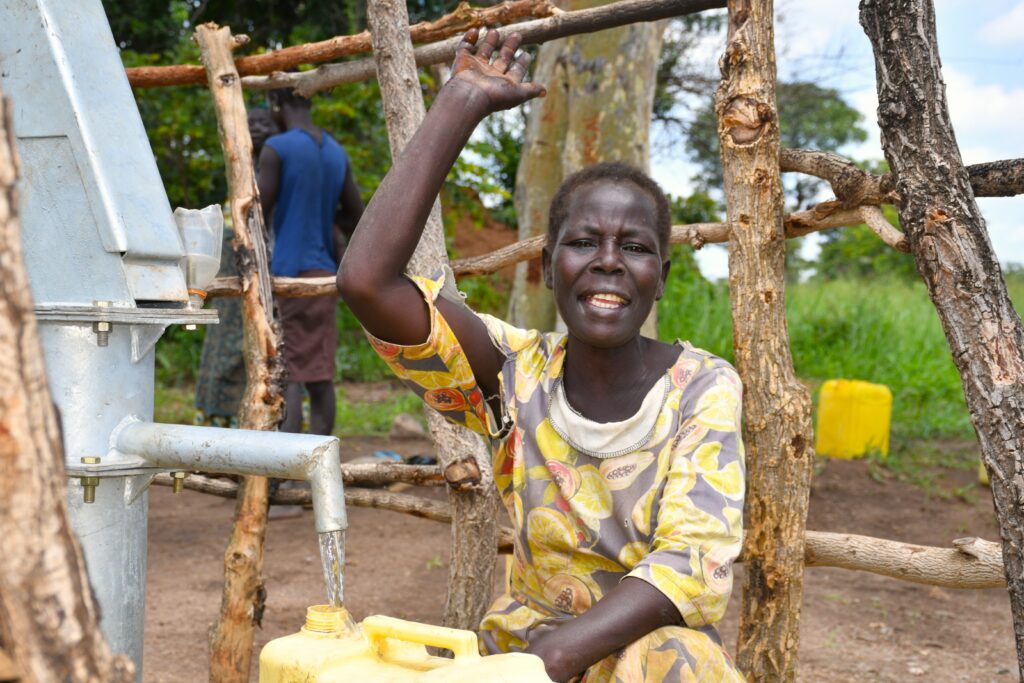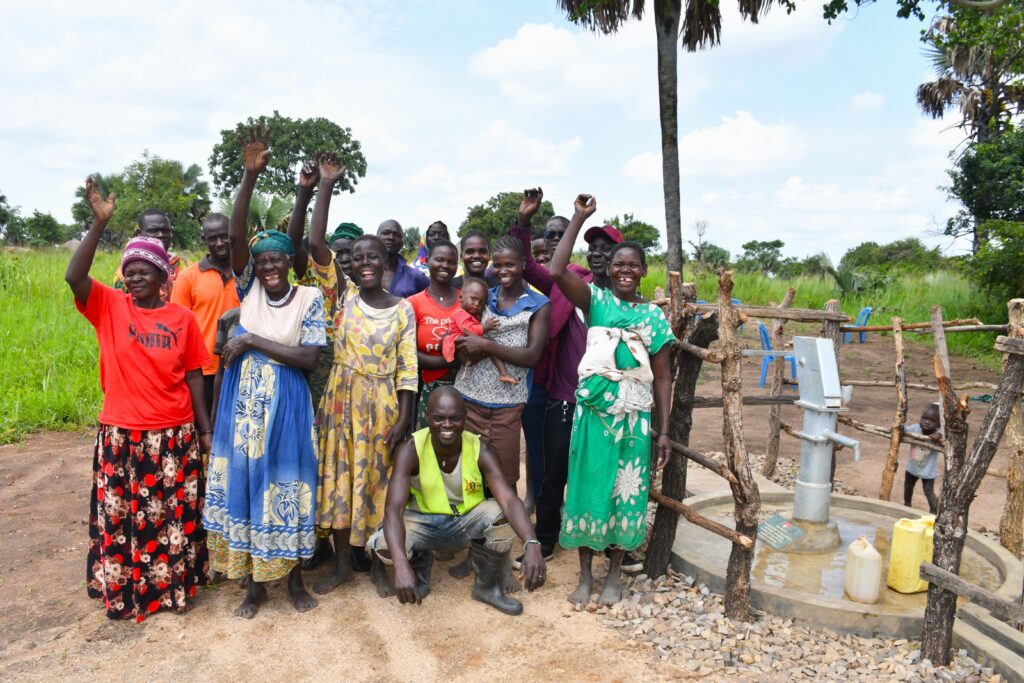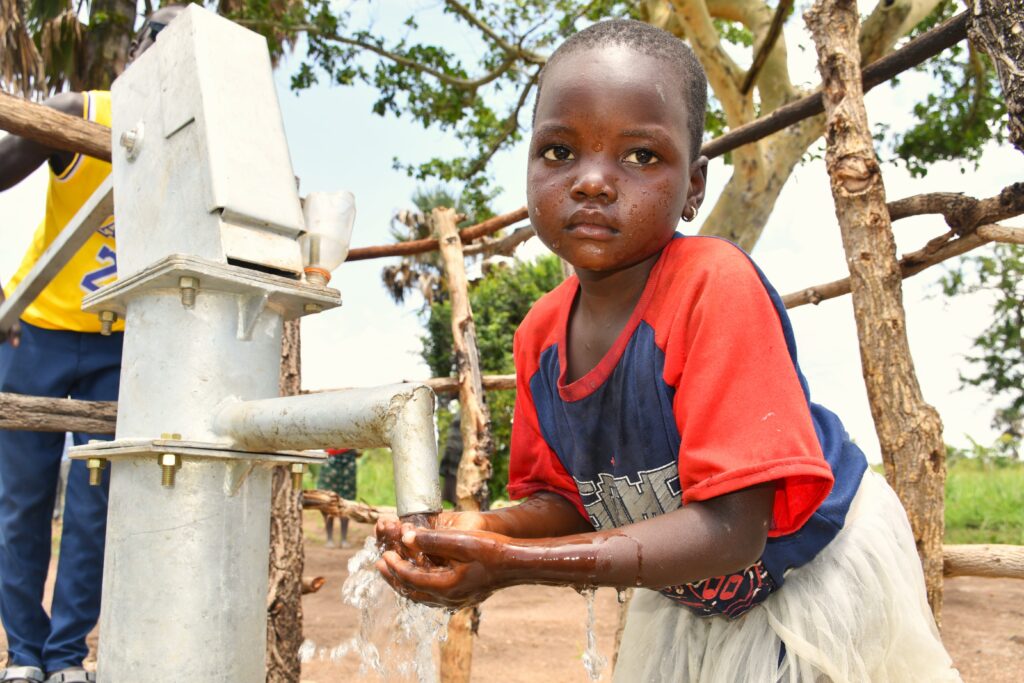When Drop in the Bucket completed a new borehole for Abegu Village in northern Uganda’s Gulu District, most of the people celebrating were women. Until now, the community’s only source was an open, muddy waterhole, reached by a narrow, overgrown path.
Women Risk Injury Fetching Water in Rural Uganda
Local mother Aryemo remembers one terrifying morning. While returning from the waterhole with a full 20-liter jerrycan, she slipped on the rain-slick trail.

“When the heavy jerrycan landed on my waist. I thought it had broken my hip,” she remembers.
A clinic visit was beyond her means, so she relied on over-the-counter painkillers. Since her fall, bending and lifting—essential tasks for a working farmer—have been painful.
Water Well Project Reduces Time Poverty for Women and Girls
Before the borehole, collecting water could take an hour each way, twice a day. The exhausting chore left little energy for farming, childcare, or schoolwork.
“Now the well is just a few minutes from my home,” Aryemo explains. “We save hours every day and still have strength to work our gardens and help our children study.”
The New Borehole Improves WASH and Community Health
The new borehole delivers clean, safe water on demand—eliminating water-borne disease risks and dangerous trips through dense bush. A trained water-user committee manages a small maintenance fund to keep the pump running for years to come.

Sustainable WASH Program Empowers Women Farmers
Drop in the Bucket requires that half of every village maintenance team be women, ensuring that those most affected by water scarcity help govern the resource. With reliable water close by, several women’s groups in Abegu are now planning vegetable plots and poultry projects to boost household income.
The Village Now Enjoys Safe Water and Economic Opportunity
 “This borehole is exactly what we needed,” Aryemo says. “Clean water without risking our bodies. Thank you for giving us back our health, our time, and our future.”
“This borehole is exactly what we needed,” Aryemo says. “Clean water without risking our bodies. Thank you for giving us back our health, our time, and our future.”
For Abegu Village, a single well has done more than quench thirst—it has opened doors to education, income, and dignity throughout the community.
